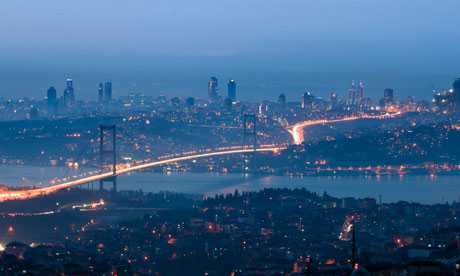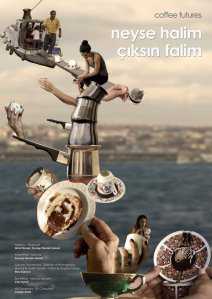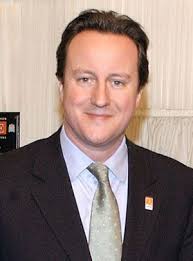These terrorist organisations are currently proscribed under UK legislation, and therefore outlawed in the UK.
Proscribed terrorist groups
46 international terrorist organisations are proscribed under the Terrorism Act 2000. Of these, two organisations are proscribed under powers introduced in the Terrorism Act 2006, as glorifying terrorism
14 organisations in Northern Ireland are proscribed under previous legislation.
List of proscribed International terrorist groups
The information about the groups’ aims was given to Parliament when they were proscribed.
17 November Revolutionary Organisation (N17)
Aims to highlight and protest at what it deems to be imperialist and corrupt actions, using violence. Formed in 1974 to oppose the Greek military Junta, its stance was initially anti-Junta and anti-US, which it blamed for supporting the Junta.
Abu Nidal Organisation (ANO)
ANO’s principal aim is the destruction of the state of Israel. It is also hostile to ‘reactionary’ Arab regimes and states supporting Israel.
Abu Sayyaf Group (ASG)
The precise aims of the ASG are unclear, but its objectives appear to include the establishment of an autonomous Islamic state in the Southern Philippine island of Mindanao.
Al-Gama’at al-Islamiya (GI)
The main aim of GI is to overthrow the Egyptian government and replace it with an Islamic state through all means, including the use of violence. Some members also want the removal of Western influence from the Arab world.
Al Ghurabaa
Al Ghurabaa is a splinter group of Al-Muhajiroun and disseminates materials that glorify acts of terrorism.
These terrorist organisations are currently proscribed under UK legislation, and therefore outlawed in the UK.Proscribed terrorist group
s46 international terrorist organisations are proscribed under the Terrorism Act 2000. Of these, two organisations are proscribed under powers introduced in the Terrorism Act 2006, as glorifying terrorism14 organisations in Northern Ireland are proscribed under previous legislation.List of proscribed International terrorist groupsThe information about the groups’ aims was given to Parliament when they were proscribed.
Al Ittihad Al Islamia (AIAI)
The main aims of AIAI are to establish a radical Sunni Islamic state in Somalia, and to regain the Ogaden region of Ethiopia as Somali territory via an insurgent campaign. Militant elements within AIAI are suspected of having aligned themselves with the ‘global jihad’ ideology of Al Qa’ida, and to have operated in support of Al Qa’ida in the East Africa region.
Al Qa’ida
Inspired and led by Usama Bin Laden, its aims are the expulsion of Western forces from Saudi Arabia, the destruction of Israel and the end of Western influence in the Muslim world.
Al Shabaab
Al Shabaab is an organisation based in Somalia which has waged a violent campaign against the Somali Transitional Federal Government and African Union peacekeeping forces since 2007, employing a range of terrorist tactics including suicide bombings, indiscriminate attacks and assassinations. It’s principal aim is the establishment of a fundamentalist Islamic state in Somalia, but the organisation has publicly pledged its allegiance to Usama Bin Laden and has announced an intention to combine its campaign in the Horn of Africa with Al Qa’ida’s aims of global jihad.
Ansar Al Islam (AI)
AI is a radical Sunni Salafi group from northeast Iraq around Halabja. The group is anti-Western, and opposes the influence of the US in Iraqi Kurdistan and the relationship of the KDP and PUK to Washington. AI has been involved in operations against Multi-National Forces-Iraq (MNF-I).
Ansar Al Sunna (AS)
AS is a fundamentalist Sunni Islamist extremist group based in central Iraq and what was the Kurdish Autonomous Zone (KAZ) of Northern Iraq. The group aims to expel all foreign influences from Iraq and create a fundamentalist Islamic state.
Armed Islamic Group (Groupe Islamique Armée) (GIA)
The aim of the GIA is to create an Islamic state in Algeria using all necessary means, including violence.
Asbat Al-Ansar (‘League of Partisans’ or ‘Band of Helpers
Sometimes going by the aliases of ‘The Abu Muhjin’ group/faction or the ‘Jama’at Nour’, this group aims to enforce its extremist interpretation of Islamic law within Lebanon and, increasingly, further afield.
Babbar Khalsa (BK)
BK is a Sikh movement that aims to establish an independent Khalistan within the Punjab region of India.
Basque Homeland and Liberty (Euskadi ta Askatasuna) (ETA)
ETA seeks the creation of an independent state comprising the Basque regions of both Spain and France.
Baluchistan Liberation Army (BLA)
BLA are comprised of tribal groups based in the Baluchistan area of Eastern Pakistan, which aims to establish an independent nation encompassing the Baluch dominated areas of Pakistan, Afghanistan and Iran.
Egyptian Islamic Jihad (EIJ)
The main aim of the EIJ is to overthrow the Egyptian government and replace it with an Islamic state. However, since September 1998, the leadership of the group has also allied itself to the ‘global Jihad’ ideology expounded by Usama Bin Laden and has threatened Western interests.
Groupe Islamique Combattant Marocain (GICM)
The traditional primary objective of the GICM has been the installation of a governing system of the caliphate to replace the governing Moroccan monarchy. The group also has an Al Qa’ida-inspired global extremist agenda.
Hamas Izz al-Din al-Qassem Brigades
Hamas aims to end Israeli occupation in Palestine and establish an Islamic state.
Harakat-Ul-Jihad-Ul-Islami (HUJI)
The aim of HUJI is to achieve though violent means accession of Kashmir to Pakistan, and to spread terror throughout India. HUJI has targeted Indian security positions in Kashmir and conducted operations in India proper.
Harakat-Ul-Jihad-Ul-Islami (Bangladesh) (Huji-B) The main aim of HUJI-B is the creation of an Islamic regime in Bangladesh modelled on the former Taliban regime in Afghanistan.
Harakat-Ul-Mujahideen/Alami (HuM/A and Jundallah)
The aim of both HuM/A and Jundallah is the rejection of democracy of even the most Islamic-oriented style, and to establish a caliphate based on Sharia law, in addition to achieving accession of all Kashmir to Pakistan. HuM/A has a broad anti-Western and anti-President Musharraf agenda.
Harakat Mujahideen (HM)
HM, previously known as Harakat Ul Ansar (HuA), seeks independence for Indian-administered Kashmir. The HM leadership was also a signatory to Usama Bin Laden’s 1998 fatwa, which called for worldwide attacks against US and Western interests.
Hizballah Military Wing
Hizballah is committed to armed resistance to the state of Israel, and aims to seize all Palestinian territories and Jerusalem from Israel. Its military wing supports terrorism in Iraq and the Palestinian territories.
Hezb-E Islami Gulbuddin (HIG)
Led by Gulbuddin Hekmatyar who is in particular very anti-American, HIG is anti-Western and desires the creation of a fundamentalist Islamic State in Afghanistan.
International Sikh Youth Federation (ISYF)
ISYF is an organisation committed to the creation of an independent state of Khalistan for Sikhs within India.
Islamic Army of Aden (IAA)
The IAA’s aims are the overthrow of the current Yemeni government and the establishment of an Islamic State following Sharia Law.
Islamic Jihad Union (IJU)
The primary strategic goal of the IJU is the elimination of the current Uzbek regime. The IJU would expect that following the removal of President Karimov, elections would occur in which Islamic-democratic political candidates would pursue goals shared by the IJU leadership.
Islamic Movement of Uzbekistan (IMU)
The primary aim of IMU is to establish an Islamic state in the model of the Taleban in Uzbekistan. However, the IMU is reported to also seek to establish a broader state over the entire Turkestan area.
Jaish e Mohammed (JeM)
JeM seeks the ‘liberation’ of Kashmir from Indian control as well as the ‘destruction’ of America and India. JeM has a stated objective of unifying the various Kashmiri militant groups.
Jeemah Islamiyah (JI)
JI’s aim is the creation of a unified Islamic state in Singapore, Malaysia, Indonesia and the Southern Philippines.
Khuddam Ul-Islam (Kul) and splinter group Jamaat Ul-Furquan (JuF)
The aim of both KUI and JuF are to unite Indian administered Kashmir with Pakistan; to establish a radical Islamist state in Pakistan; the ‘destruction’ of India and the USA; to recruit new jihadis; and the release of imprisoned Kashmiri militants
Kongra Gele Kurdistan (PKK)
PKK/KADEK/KG is primarily a separatist movement that seeks an independent Kurdish state in southeast Turkey. The PKK changed its name to KADEK and then to Kongra Gele Kurdistan, although the PKK acronym is still used by parts of the movement.
Lashkar e Tayyaba (LT)
LT seeks independence for Kashmir and the creation of an Islamic state using violent means.
Liberation Tigers of Tamil Eelam (LTTE)
The LTTE is a terrorist group fighting for a separate Tamil state in the North and East of Sri Lanka.
Libyan Islamic Fighting Group (LIFG)
The LIFG seeks to replace the current Libyan regime with a hard-line Islamic state. The group is also part of the wider global Islamist extremist movement, as inspired by Al Qa’ida. The group has mounted several operations inside Libya, including a 1996 attempt to assassinate Mu’ammar Qadhafi.
Palestinian Islamic Jihad – Shaqaqi (PIJ)
PIJ aims to end the Israeli occupation of Palestine and to create an Islamic state. It opposes the existence of the state of Israel, the Middle East Peace Process and the Palestinian Authority, and has carried out suicide bombings against Israeli targets.
Revolutionary Peoples’ Liberation Party – Front (Devrimci Halk Kurtulus Partisi – Cephesi) (DHKP-C)
DHKP-C aims to establish a Marxist-Leninist regime in Turkey by means of armed revolutionary struggle.
Salafist Group for Call and Combat (Groupe Salafiste pour la Predication et le Combat) (GSPC)
Its aim is to create an Islamic state in Algeria using all necessary means, including violence.
Saved Sect or Saviour Sect
The Saved Sect is a splinter group of Al-Muajiroon and disseminates materials that glorify acts of terrorism.
Note: The Government laid an Order in January 2010 which provides that Al Muhajiroun, Islam4UK, Call to Submission, Islamic Path and London School of Sharia should be treated as alternative names for the organisation which is already proscribed under the names Al Ghurabaa and The Saved Sect.
Sipah-E Sahaba Pakistan (SSP) (Aka Millat-E Islami Pakistan (MIP) – SSP was renamed MIP in April 2003 but is still referred to as SSP) and splinter group Lashkar-E Jhangvi (LeJ)
The aim of both SSP and LeJ is to transform Pakistan by violent means into a Sunni state under the total control of Sharia law. Another objective is to have all Shia declared Kafirs and to participate in the destruction of other religions, notably Judasim, Christianity and Hinduism.
Note: Kafirs means non-believers: literally, one who refused to see the truth. LeJ does not consider members of the Shia sect to be Muslim, hence they can be considered a ‘legitimate’ target.
Jammat-ul Mujahideen Bangladesh (JMB)
JMB first came to prominence on 20 May 2002 when eight of its members were arrested in possession of petrol bombs. The group has claimed responsibility for numerous fatal bomb attacks across Bangladesh in recent years, including suicide bomb attacks in 2005.
Tehrik Nefaz-e Shari’at Muhammadi (TNSM)
TNSM regularly attacks coalition and Afghan government forces in Afghanistan and provides direct support to Al Qa’ida and the Taliban. One faction of the group claimed responsibility for a suicide attack on an army training compound on 8 November 2007 in Dargai, Pakistan, in which 42 soldiers were killed.
Teyre Azadiye Kurdistan (TAK)
TAK is a Kurdish terrorist group currently operating in Turkey
(Note: Mujaheddin e Khalq (MeK) was removed from the list of proscribed organisations in June 2008, as a result of judgements of the Proscribed Organisations Appeals Commission and the Court of Appeal.)
Proscribed Irish groups
Continuity Army Council Cumann na mBan Fianna na hEireann Irish National Liberation Army Irish People’s Liberation Organisation Irish Republican Army Loyalist Volunteer Force Orange Volunteers Red Hand Commando Red Hand Defenders Saor Eire Ulster Defence Association Ulster Freedom Fighters Ulster Volunteer Force







